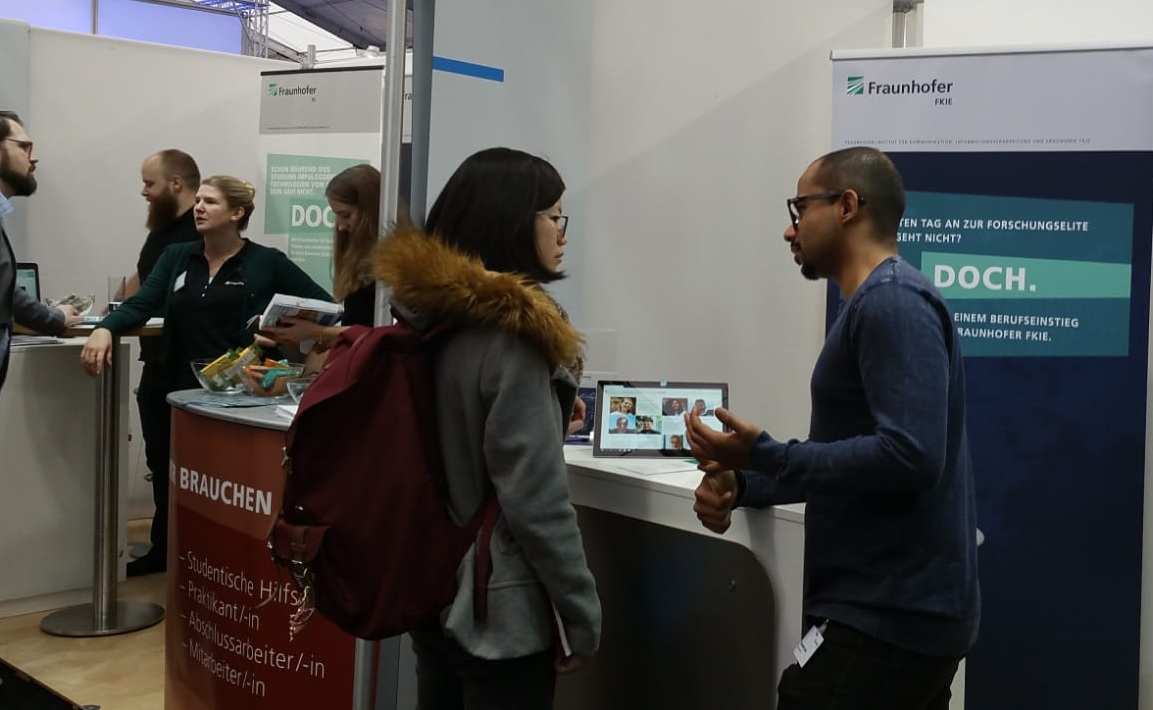
Souradip, you come from India and had already completed your bachelor’s degree in computer science there before coming to Germany in March 2015 to join the master's program at RWTH Aachen University. What led to this courageous step?
Souradip: I always knew that I wanted to work in research one day, but you don't get many opportunities to do that in India. So, I thought I'd go to Europe to get some experience, and then maybe return to India afterward. For my master's degree I had applied to several universities, including TU Delft and KTH Royal Institute of Technology in Stockholm. But the curriculum at RWTH Aachen was simply the closest to what I wanted to study, which is why I ended up coming to Germany.
You then successfully completed your master's degree in November 2017. Since January 2018 you've been a research assistant at the Fraunhofer FKIE. You could say that it has been a very smooth and ambitious transition. How did you hear about the FKIE in Aachen?
Souradip: I have been working at the Fraunhofer FKIE since November 2015. At that time, I had attended a class at the RWTH taught by Dr. Marc Adrat, the head of a research group at the FKIE, and asked him if he knew of a student job for me. As it happens, one of his employees had been looking for a student assistant to help him with a project. That's how I started commuting to the FKIE in Wachtberg on public transportation twice a week from Aachen – I started in my second semester. It was exhausting, but the work was so good and interesting that I was happy to do it. From the very beginning, I have been working in the Communication Systems (KOM) department: first as a student; then I did my compulsory internship and wrote my master's thesis here, and now I’ve been a permanent employee in the department for the past two years. It's great!
University and FKIE at the same time – how well can the two be combined?
Souradip: I have to say that I've learned more as a research assistant at the FKIE than in all my time at the university. Here you learn on the job – it’s first-hand experience. It's fun. Studies are much more theoretical. At FKIE I work in the Software Defined Radio research group – that is, in the field of radio. This is super exciting. The topic for my master's thesis was something we discussed and determined together within the group. Ideally, it was to be a topic that I'd been working on anyway and which would also benefit the work of the group. That's how I got into channel coding and error correcting codes for radio. One of my colleagues supervised the thesis.
What is your typical day at the FKIE like?
Souradip: For me, a typical day at the FKIE is about 40 percent research – reading scientific articles and so forth – 40 percent coding, and 20 percent writing. The latter is actually my least favorite thing to do.
What do you like best about the FKIE?
Souradip: I like the work; it is really exciting and flexible and offers you plenty of opportunities. I also like my colleagues. Everyone' s really friendly and warm hearted. I feel very much at home here.
You wrote your master's thesis at the FKIE. The next step now would be the doctorate. So, how's that looking?
Souradip: In principle, I'd be up for it. But so far, I haven't found the right topic – something I'd want to work on for the next four to six years. I've committed myself to making a decision over the next year. It’s either now or never. At least, that's how I feel at the moment. In any case, the FKIE is a great place to do your doctorate. Doctoral studies are strongly supported here.
